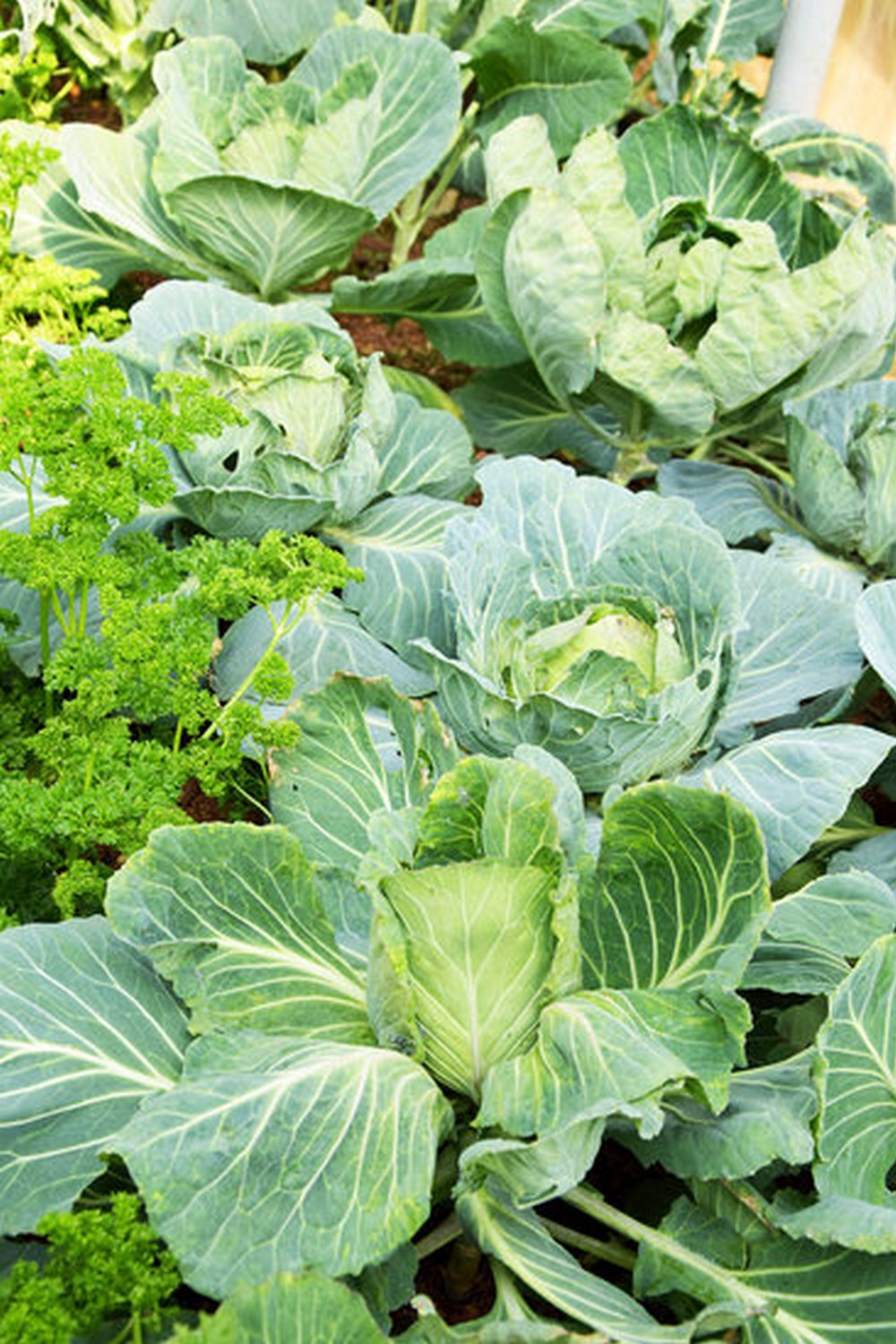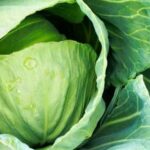Are you looking to start a sustainable and eco-friendly garden in Central Florida? Look no further. Central Florida Organic Vegetable Gardening offers a wealth of information and resources for those interested in cultivating their own organic vegetables. Whether you are a beginner or seasoned gardener, this guide will provide valuable insights into the benefits, ideal vegetables to grow, soil preparation, pest management, irrigation practices, harvesting and storage tips, as well as local resources for organic gardening in Central Florida.
Central Florida’s warm climate and rich soil create the perfect environment for growing organic vegetables. By embracing organic practices, you can not only enjoy fresh and flavorful produce but also contribute to the conservation of the environment and promote sustainable living. In this article, we will explore the many benefits of growing organic vegetables in Central Florida and learn about the best practices for successful organic gardening in this region.
If you’re ready to dive into the world of Central Florida Organic Vegetable Gardening, grab your shovel and let’s get started. This guide will equip you with all the necessary knowledge to establish your own thriving organic vegetable garden that can enrich your health and well-being while making a positive impact on our local ecosystem.
Benefits of Growing Organic Vegetables in Central Florida
When it comes to organic vegetable gardening in Central Florida, there are numerous benefits to enjoy. Whether you are a seasoned gardener or just starting out, choosing to grow organic vegetables offers several advantages for both your health and the environment.
Health Benefits
One of the primary benefits of growing organic vegetables is the impact on your health. By avoiding synthetic pesticides and fertilizers, you can rest assured that the produce you harvest from your garden is free from harmful chemicals. This means that you and your family can enjoy nutritious vegetables without the worry of potential pesticide residues.
Environmental Benefits
In addition to personal health benefits, organic vegetable gardening in Central Florida also contributes positively to the environment. By using natural methods for pest control and soil fertility, organic gardening promotes biodiversity and supports overall ecosystem health. Furthermore, by avoiding synthetic chemicals, organic gardens help prevent water and air pollution, ultimately benefiting the local environment.
Taste and Nutritional Benefits
Organic vegetables have been found to have higher levels of certain nutrients and antioxidants compared to conventionally grown produce. Growing your own organic vegetables in Central Florida allows you to fully experience the superior taste and nutritional benefits of freshly harvested, chemical-free produce. Additionally, the variety of flavors and textures found in organically grown vegetables can enhance your culinary experiences while providing essential vitamins and minerals for a well-rounded diet.
By choosing to grow organic vegetables in Central Florida, you not only benefit personally but also contribute positively to the local environment and community. The next section will explore which specific vegetables thrive best in Central Florida’s climate for successful organic gardening practices.
Ideal Vegetables to Grow in Central Florida’s Climate
When it comes to organic gardening in Central Florida, choosing the right vegetables to grow is crucial for success. The climate in this region can be quite challenging, with hot and humid summers and mild winters. However, there are several vegetables that thrive in Central Florida’s climate and are well-suited for organic cultivation.
Warm Season Vegetables
Central Florida’s warm season provides a great opportunity to grow a variety of vegetables. Tomatoes, peppers, eggplants, and okra are popular choices for organic vegetable gardens in this region. These vegetables not only tolerate the heat but also produce high yields when grown organically. Other warm-season vegetables that do well in Central Florida include squash, cucumbers, and sweet potatoes.
Cool Season Vegetables
While the winters in Central Florida are relatively mild, there is still a cool season during which certain vegetables thrive. Leafy greens like kale, lettuce, and spinach are excellent choices for the cooler months. Additionally, broccoli, cauliflower, carrots, and radishes can be successfully grown in Central Florida’s winter climate. These cool-season vegetables not only add variety to your organic garden but also provide fresh produce during the cooler months.
Adaptable Vegetables
Some vegetables are adaptable to both warm and cool seasons in Central Florida. For example, beans (both pole and bush), as well as herbs like basil and cilantro, can be grown year-round with proper care. These versatile vegetables and herbs offer continuous harvests throughout the year in an organic vegetable garden in Central Florida.
By carefully selecting the ideal vegetables for Central Florida’s climate, organic gardeners can enjoy a bountiful harvest while practicing sustainable and eco-friendly gardening methods specific to this region.
Soil Preparation and Maintenance for Organic Vegetable Gardening
When it comes to organic vegetable gardening in Central Florida, soil preparation and maintenance are crucial for the success of your crops. Central Florida’s sandy soil can pose a challenge, but with the right techniques, it can be turned into fertile ground for growing a variety of organic vegetables. One of the key benefits of organic gardening is that it enriches the soil instead of depleting its nutrients, promoting long-term sustainability.
To ensure the fertility of the soil, it is important to incorporate organic matter such as compost, aged manure, or cover crops. These materials not only provide essential nutrients to the soil but also improve its structure and water retention capacity. Additionally, practicing crop rotation can help prevent the depletion of specific nutrients in the soil and reduce the risk of disease buildup.
In terms of maintenance, regular weeding is essential to keep your organic vegetable garden healthy. Weeds compete with your crops for water and nutrients, so it’s important to remove them regularly. Mulching is another effective technique for weed control while also helping to conserve moisture and regulate soil temperature. With proper soil preparation and maintenance, your Central Florida organic vegetable garden will yield bountiful harvests year after year.
| Benefit | Details |
|---|---|
| Enriches Soil | Organic gardening enriches the soil instead of depleting its nutrients. |
| Improves Structure | Adding organic matter improves the structure and water retention capacity of the sandy soil in Central Florida. |
| Weed Control |
Pest and Disease Management in Central Florida Organic Vegetable Gardens
Central Florida organic vegetable gardening presents its unique set of challenges when it comes to pest and disease management. The warm and humid climate of the region provides the perfect conditions for a wide array of pests and diseases to thrive. However, with the right knowledge and strategies, it is possible to maintain a healthy and thriving organic vegetable garden.
One of the key principles of organic pest and disease management is prevention. By promoting overall plant health through proper soil preparation, regular watering, and providing adequate sunlight, plants are better equipped to resist pests and diseases. Additionally, planting a diverse range of crops can help reduce the risk of widespread infestations as certain plants can naturally repel pests or attract beneficial insects that prey on harmful ones.
Another important aspect of pest and disease management in central Florida organic vegetable gardens is monitoring. Regular inspection of plants for any signs of infestation or disease can help catch potential issues early on before they become more serious. This allows for a more targeted and timely intervention, whether it be through natural remedies such as companion planting or introducing beneficial insects, or through the use of organic pesticides approved for use in organic gardening.
It’s also important to stay informed about the specific pests and diseases common in Central Florida and their life cycles. This knowledge can inform the timing of preventative measures as well as help identify effective natural controls. By staying proactive and adopting a holistic approach to pest and disease management, organic vegetable gardeners in Central Florida can successfully navigate these challenges while minimizing their environmental impact.
| Pest & Disease Management | Central Florida Organic Vegetable Gardens |
|---|---|
| Prevention | Promoting plant health through proper soil preparation |
| Monitoring | Regular inspection of plants for signs of infestation |
| Knowledge | Staying informed about specific pests & diseases common in Central Florida |
Best Practices for Watering and Irrigation in Central Florida
When it comes to organic vegetable gardening in Central Florida, proper watering and irrigation are essential for the success of your crops. The region’s hot and humid climate can pose a challenge, but with the right practices, you can ensure that your vegetables thrive. Here are some best practices for watering and irrigation in Central Florida:
- Use drip irrigation: Drip irrigation is highly efficient and delivers water directly to the roots of your plants. This method helps conserve water and reduces the risk of diseases caused by overhead watering.
- Water deeply and infrequently: Instead of shallow, frequent watering, it’s important to encourage deep root growth by providing a good soak less often. This will help your plants develop a strong and resilient root system.
- Water in the morning: In Central Florida’s warm climate, it’s best to water your vegetable garden in the early morning to minimize evaporation and allow the foliage to dry during the day, reducing the risk of fungal diseases.
Another important consideration for watering and irrigation in Central Florida organic vegetable gardening is the use of mulch. Applying a layer of organic mulch around your plants helps retain soil moisture, suppresses weeds, regulates soil temperature, and improves overall soil health.
Being mindful of water conservation is crucial in Central Florida, where water resources can be limited at times. By implementing these best practices for watering and irrigation, you can promote healthy plant growth while minimizing water waste – an essential aspect of sustainable organic gardening practices.
Harvesting and Storing Organic Vegetables in Central Florida
One of the most satisfying parts of organic vegetable gardening in Central Florida is harvesting and enjoying the fruits of your labor. With a little planning and know-how, you can ensure that your organically-grown vegetables stay fresh and flavorful for as long as possible. When it comes to harvesting, timing is key. For most vegetables, harvesting should be done when they are at their peak ripeness. This ensures the best flavor and nutritional value.
After harvesting your organic vegetables, proper storage is essential to maintain their quality. Some vegetables, such as tomatoes and peppers, can be stored at room temperature for short periods, while others like leafy greens and herbs need to be refrigerated immediately. Be sure to research the specific storage needs of each type of vegetable that you grow in your Central Florida garden.
Storing organic vegetables properly can not only extend their shelf life but also help preserve their nutritional value. By taking the time to harvest and store your vegetables correctly, you can enjoy the delicious taste of your homegrown produce well beyond its harvest date. When you put this much effort into growing organic vegetables in Central Florida, you want to make sure that every last bit is savored and enjoyed.
Resources for Central Florida Organic Vegetable Gardening
When venturing into organic vegetable gardening in Central Florida, it is essential to know where to find the resources you need. Whether you are in search of organic seeds, expert advice, or a supportive community, there are numerous local nurseries, community gardens, and events that can help you on your journey to successful organic gardening.
Local nurseries in the Central Florida area offer a variety of organic seeds, plants, and supplies to get your garden started. Here are some recommended local nurseries to consider:
- Green Thumb Nursery
- Organic Garden Center
- Florida Native Plants Nursery
Community gardens provide a wonderful opportunity to learn from experienced gardeners and connect with others who share your passion for organic gardening. Many community gardens in Central Florida offer workshops, volunteer opportunities, and access to shared tools and resources. Consider getting involved with the following community gardens:
- Orlando Community Garden
- Growing Orlando Gardens
- Lake Eola Heights Community Garden
In addition to local nurseries and community gardens, keep an eye out for events such as plant sales, workshops, and gardening classes. These events provide valuable educational opportunities and a chance to meet other like-minded individuals in the central florida organic vegetable gardening community.
By taking advantage of these resources, you can enrich your knowledge of organic gardening practices and connect with others who share your enthusiasm for sustainable living in Central Florida.
Conclusion
In conclusion, organic vegetable gardening in Central Florida offers a multitude of benefits not only for the environment but also for our health. By choosing to grow organic vegetables, we contribute to the reduction of harmful chemicals in our soil and water, support local ecosystems, and promote sustainable farming practices.
The abundance of sunshine and warmth in Central Florida provides an ideal environment for growing a wide variety of organic vegetables. From tomatoes and peppers to squash and cucumbers, the options are endless for those looking to cultivate their own produce.
Furthermore, the emphasis on soil preparation and maintenance is crucial for successful organic vegetable gardening in Central Florida. By focusing on building healthy, nutrient-rich soil through composting and natural fertilizers, gardeners can ensure that their vegetables will thrive in the region’s unique climate. In addition, implementing best practices for pest and disease management, as well as efficient watering and irrigation techniques, are essential for maintaining a successful organic garden.
Lastly, it is important to seek out local resources such as nurseries, community gardens, and events that support organic vegetable gardening in Central Florida. By connecting with like-minded individuals and organizations, gardeners can continue to learn and improve their skills while contributing to the growth of sustainable agriculture in the area. Overall, embracing organic practices in central Florida organic vegetable gardening not only benefits us personally with fresh produce but also contributes positively to our environment and community.
Frequently Asked Questions
When Should I Start a Vegetable Garden in Central Florida?
In Central Florida, the ideal time to start a vegetable garden is in the fall. This allows for cooler temperatures, which are more favorable for most vegetable crops. Starting in September or October gives plants a good head start before winter.
Can You Have a Vegetable Garden Year Round in Florida?
Yes, it is possible to have a vegetable garden year-round in Florida thanks to its mild climate. Many vegetables can be grown during the winter months, while others thrive in the warmer months. With proper planning and care, you can enjoy homegrown produce throughout the year.
What Is the Easiest Food to Grow in Central Florida?
The easiest food to grow in Central Florida includes tomatoes, peppers, and herbs like basil and mint. These plants are relatively low-maintenance and can thrive in the warm and humid climate of central Florida with proper care and watering.

If you’re looking to get into vegetable gardening, or are just looking for some tips on how to make your current garden better, then you’ve come to the right place! My name is Ethel and I have been gardening for years. In this blog, I’m going to share with you some of my best tips on how to create a successful vegetable garden.





